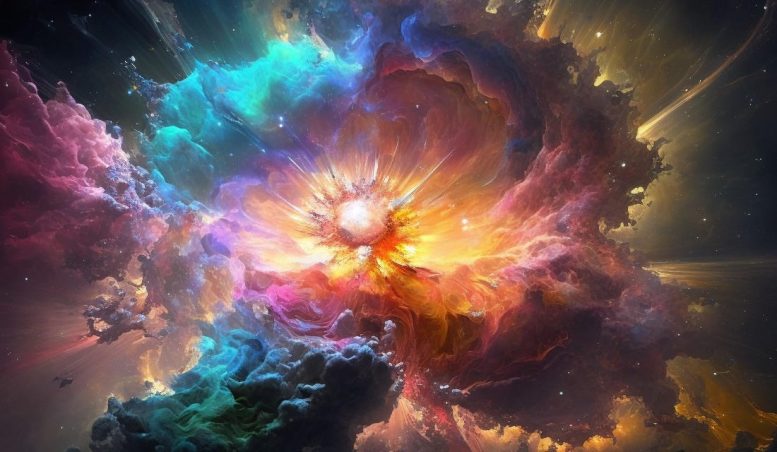
The creative process involves two key phases: generating new ideas and evaluating their potential, and this evaluation appears to be subjective, varying from individual to individual based on factors such as experience, personality, and environment. Researchers at the Paris Brain Institute have been studying the neurocomputational mechanisms of creativity and aim to understand the role of individual preferences in promoting creativity, with a focus on originality and relevance as two significant criteria in the subjective evaluation of ideas. Credit: Paris Brain Institute
Why are we compelled to develop new ideas instead of adhering to conventional techniques and procedures? What ignites our passion to pioneer, even when it might cost us time, effort, and our standing, potentially culminating in a profound setback? The roots of creativity are intricate and we’re just starting to unravel them, with motivation being a pivotal component. However, merely chasing an objective doesn’t fully clarify why we prioritize certain thoughts over others or if such selections contribute positively to the outcomes of our endeavors.
“Creativity can be defined as the ability to produce original and relevant ideas in a given context, to solve a problem or improve a situation. It is a key skill for adapting to change or provoking it,” explains Alizée Lopez-Persem, a researcher in cognitive neuroscience. “Our team is interested in the cognitive mechanisms that enable creative ideas to be produced, hoping to learn how to use them wisely.”
Researchers currently agree that the creative process consists of two successive phases: generating new ideas and evaluating their potential. But they have yet to learn how this evaluation is carried out and what leads us to retain some ideas rather than others. “We need to value our ideas to select the best ones, says Lopez-Persem. However, there is no indication that this operation corresponds to a rational and objective evaluation in which we try to inhibit our cognitive biases from making the best possible choice. We, therefore, wanted to know how this value is assigned and whether it depends on individual characteristics.”
Objectifying the inner movement of the blossoming of ideas
Modeling the creative process as a sequence of operations involving distinct brain networks does not correspond to a popular conception of creativity, which is usually represented as a momentum that seizes, transports, and surpasses us. On the contrary, Emmanuelle Volle’s team believes that creativity has three fundamental dimensions that can be modeled using mathematical tools: exploration, which is based on personal knowledge and makes it possible to imagine possible options; evaluation, which consists of gauging the qualities of an idea; and selection, which allows us to choose the concept that will be verbalized.
To understand the reciprocal relationships between these three dimensions, the researchers reproduced them in a computational model – which they compared with the actual behavior of individuals recruited for the study. Via Paris Brain Institute’s PRISME platform, 71 participants were invited to take free association tests, which consist of matching words in the most audacious way possible. They were then asked to rate how much they liked these associations of ideas and whether they seemed relevant and original.
“Our results indicate that the subjective evaluation of ideas plays an important role in creativity,” says Emmanuelle Volle, a neurologist. “We observed a relationship between the speed of production of new ideas and participants’ level of appreciation of these ideas. In other words, the more you like the idea you are about to formulate, the faster you come up with it. Imagine, for example, a cook who intends to make a sauce: the more the combination of flavors seduces him in his mind, the faster he will throw himself on the ingredients! Our other discovery is that this assessment combines two subjective criteria: originality and relevance.”
What individual preferences promote creativity?
The team shows that the importance of these two criteria varies between individuals. “It all depends on their experience, personality, and probably their environment, adds the researcher. Some favor the originality of an idea over its relevance; for others, it’s the other way around. However, preferring either originality or relevance has a role in creative thinking: we have shown that individuals inclined to original ideas suggest more inventive concepts.”
Finally, the team’s model predicted the speed and quality of participants’ creative proposals based on their preferences measured in an independent task. These results highlight the mechanical nature of the creative impulse. They also point to the possibility, in the long term, of precisely describing the mechanisms of creativity at the neurocomputational level and correlating them to their neural substrate… challenging the stereotype that creative thinking is a mysterious process over which we have no control at all.
“In the future, we want to define different creativity profiles related to people’s fields of activity. Do you have different creative preferences if you are an architect, software engineer, illustrator, or technician? adds Alizée Lopez-Persem. Which environments foster creativity, and which ones inhibit it? Could we modify or re-educate our creative profile through cognitive exercises to match personal ambitions or needs? All these questions remain open, but we firmly intend to answer them.”
Reference: “How Subjective Idea Valuation Energizes and Guides Creative Idea Generation” by Alizée Lopez-Persem email the author, Sarah Moreno-Rodriguez, Marcela Ovando-Tellez, Théophile Bieth, Stella Guiet, Jules Brochard and Emmanuelle Volle, 21 March 2023, American Psychologist.
DOI: 10.1037/amp0001165








Sometimes the creative juices flow b/c we refuse to accept that someone else’s creations are valuable in “our” estimation!! AND, sometimes, someone else’s ideas spark a whole new understanding for ourselves, and for everyone!!
How about survival? I am a “creative” and I do to feed my children. Take care of my mother and have a place to sleep. I fix everything I can and find novel ways to live better than I should.
I think you’re referring to the relevance part of the authors’ definition for creativity.
Necessity is the mother of invention.